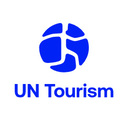Tourism for Sustainable Development in the Spotlight at UN High-Level Forum Event
This week will bring tourism back to the United Nations headquarters to emphasize the sector’s unique position to accelerate progress towards the Sustainable Development Goals (SDGs).
Reflecting the unprecedented relevance of tourism on the UN agenda, UNWTO together with the Ministry of Tourism and Sport, Republic of Croatia and support from Ministry of Tourism, India, Chair of the G20 Tourism Working Group will gather leaders from the public and private sectors for a high level roundtable at the official side event on “Economic, Social, and Environmental Sustainability in Tourism" which will be held on Friday 14 July within the framework of the UN High-Level Political Forum on Sustainable Development.
Inspiring and Guiding Action
The high-level event will further advance UNWTO’s work in making tourism a key pillar of sustainable development, most notably through enhanced public-private partnerships. In New York, UNWTO together with partners will:
- Provide a better understanding of the SDGs from the perspective of tourism and inspire further action among both government and private sector stakeholders.
- Present the Goa Roadmap for Tourism as a Vehicle for Achieving the SDGs developed under India’s G20 Presidency.
- Raise awareness about a crucial development that is mobilizing the power of data by forging a global consensus for harmonized data on the economic, social and environmental performance of tourism at international, national and destination levels: the forthcoming Statistical Framework for Measuring the Sustainability of Tourism (MST).
- Outline the benefits that private sector can bring to, and draw from, the development of harmonized Environmental, Social and Governance (ESG) Framework for Tourism Businesses.
- Share the key points of the recently launched “Achieving the SDGs through tourism: Toolkit of Indicators for Projects (TIPS)” developed in partnership with the Japan International Cooperation Agency (JICA) as a comprehensive resource designed to guide users in aligning tourism development projects with the SDGs.
Connecting leading stakeholders
The Forum side event is aimed at inspiring common action between the public, private and academic sectors for the tourism sector to achieve real sustainability by focusing on the economic, social and environmental aspects in tourism as well as governance. Discussions will count on the insights of public, private and academic sector leaders from every global region, as well as key figures from within the United Nations itself.
- Csaba Kőrösi, President of the United Nations General Assembly will join Lachezara Stoeve, President of the Economic and Social Council (ECOSOC) in officially opening the event.
- Moderated by UNWTO’s Executive Director Zoritsa Urosevic, the high-level roundtable discussion will count on the participation of Ministers of Tourism of Croatia, India, Jamaica, Spain and Dr. Ivan Šimonović, Permanent Representative of the Republic of Croatia to the United Nations.
- Representing the private sector will be Matt Callaghan, Director of EasyJet Holidays, while Edward Brooks, Executive Director and co-Founder of Oxford SDG Impact Lab, will provide the academic perspective.
RELATED LINKS:
- Event page for more information
- Watch in live via UN web TV
- Goa Roadmap for Tourism as a Vehicle for Achieving the Sustainable Development Goals
- Measuring the Sustainability of Tourism (MST)
- ESG Framework for tourism businesses
- The Achieving the SDGs through tourism – Toolkit of Indicators for Projects (TIPs) Publication
- Tourism statistics
About UN Tourism
The World Tourism Organization (UN Tourism) is the United Nations agency responsible for the promotion of responsible, sustainable and universally accessible tourism.
As the leading international organization in the field of tourism, UN Tourism promotes tourism as a driver of economic growth, inclusive development and environmental sustainability and offers leadership and support to the sector in advancing knowledge and tourism policies worldwide.
Our Priorities
Mainstreaming tourism in the global agenda: Advocating the value of tourism as a driver of socio-economic growth and development, its inclusion as a priority in national and international policies and the need to create a level playing field for the sector to develop and prosper.
Promoting sustainable tourism development: Supporting sustainable tourism policies and practices: policies which make optimal use of environmental resources, respect the socio-cultural authenticity of host communities and provide socio-economic benefits for all.
Fostering knowledge, education and capacity building: Supporting countries to assess and address their needs in education and training, as well as providing networks for knowledge creation and exchange.
Improving tourism competitiveness: Improving UN Tourism Members' competitiveness through knowledge creation and exchange, human resources development and the promotion of excellence in areas such as policy planning, statistics and market trends, sustainable tourism development, marketing and promotion, product development and risk and crisis management.
Advancing tourism's contribution to poverty reduction and development: Maximizing the contribution of tourism to poverty reduction and achieving the SDGs by making tourism work as a tool for development and promoting the inclusion of tourism in the development agenda.
Building partnerships: Engaging with the private sector, regional and local tourism organizations, academia and research institutions, civil society and the UN system to build a more sustainable, responsible and competitive tourism sector.
Our Structure
Members: An intergovernmental organization, UN Tourism has 160 Member States, 6 Associate Members, 2 Observers and over 500 Affiliate Members.
Organs: The General Assembly is the supreme organ of the Organization. The Executive Council take all measures, in consultation with the Secretary-General, for the implementation of the decisions and recommendations of the General Assembly and reports to the Assembly.
Secretariat: UN Tourism headquarters are based in Madrid, Spain. The Secretariat is led by the Secretary-General and organized into departments covering issues such as sustainability, education, tourism trends and marketing, sustainable development, statistics and the Tourism Satellite Account (TSA), destination management, ethics and risk and crisis management. The Technical Cooperation and Silk Road Department carries out development projects in over 100 countries worldwide, while the Regional Departments for Africa, the Americas, Asia and the Pacific, Europe and the Middle East serve as the link between UN Tourism and its 160 Member States. The Affiliate Members Department represents UN Tourism's 500 plus Affiliate members.
